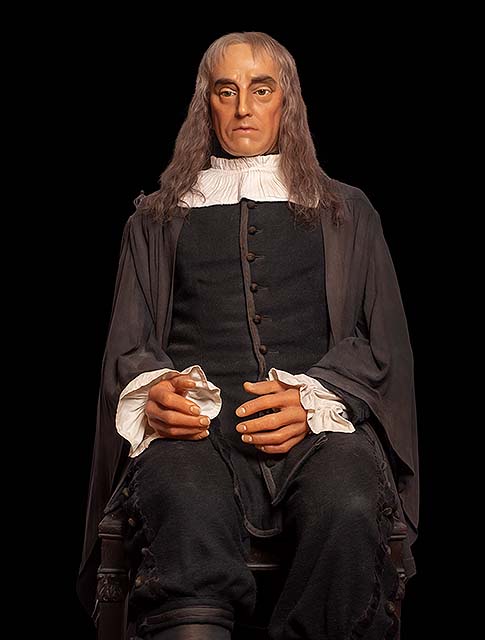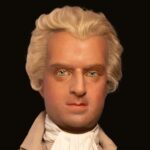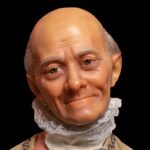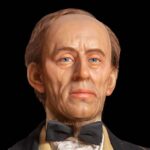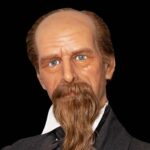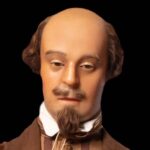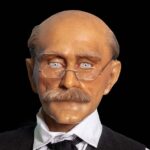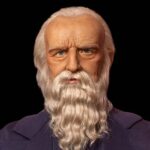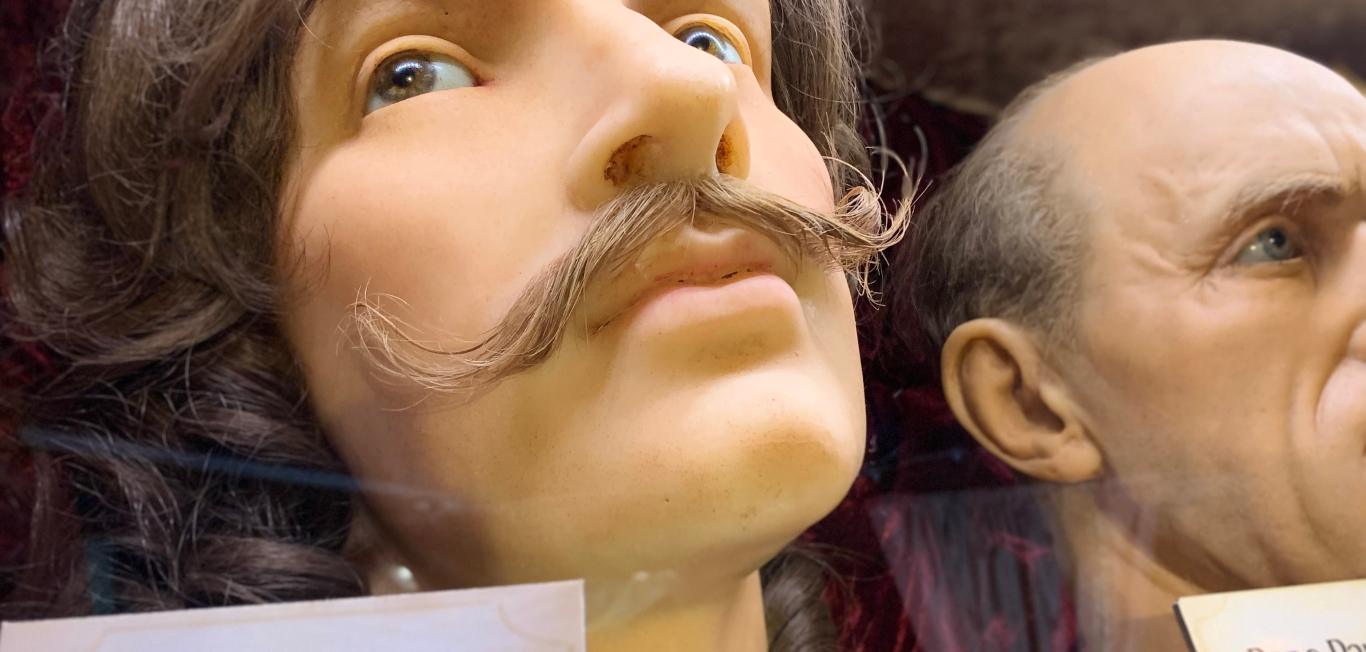Biography of John Milton
John Milton, a famous 17th-century English author and poet, had strong ambitions and passions for language and historical thought from a young age. With a father who spared no expense to fuel his son’s educational and cultural interests, it is no surprise that Milton would eventually rise as one of the greats, dedicating his entire life to his work and the strong, often controversial, opinions that define his poetic career. Fluent in many languages, most notably Greek, Latin, and Italian, much of Milton’s work is rooted in translation and written in various forms.
Composing pieces rooted in strong religious and political beliefs, specifically those against the Roman Catholic Church, the Church of England, and the English monarchy, Milton never wavered from expressing every thought in his work, even at his own risk. A key supporter of the abolition of the throne and the execution of tyrannical King Charles I, Milton found himself at the top of the new Commonwealth of England, serving as secretary of foreign tongues for the Council of State, headed by Oliver Cromwell. Even after the fall of the Commonwealth and in the face of possible execution, Milton held firm in his distaste of the monarchy, determined to maintain his personal liberty, even against a king.
John Milton died on November 8, 1674, at 65, in London, England, due to complications from gout. Diagnosed with complete blindness 22 years before his death, Milton relied heavily on his three surviving daughters to help continue his work, never wavering in his passion as an author and poet. Widely considered one of the greatest English poets after William Shakespeare, Milton established a legacy that has spanned centuries, influencing countless authors, theologians, and polemicists around the world.
Interesting Facts
About John Milton
While studying at the University of Cambridge, John Milton was nicknamed “Lady of Christ’s College” by his peers (whom he complained about for being unfriendly), most likely due to his fair complexion, auburn hair, and delicate features.
During his time abroad from 1638-39, Milton met Galileo, an Italian philosopher, astronomer, and mathematician who is of great historical and scientific importance. It is unknown under what circumstances the two were able to meet.
DID YOU KNOW?
John Milton was nicknamed “Lady of Christ’s College” by his peers.
John Milton was named after his father, John Milton, and passed the name down to his only son, who tragically passed away in infancy.
Milton was completely blind in the last 22 years of his life, an affliction he saw as a gift from God.
John Milton composed the History of Britain (1670), drawing from historical interests fostered from a young age. Unfortunately, his research and writing would become interrupted with the rise of the Commonwealth of England, leaving the account incomplete even upon publication, ending with the Norman Conquest of 1066-1071.
Early Life of John Milton
John Milton, Jr. was born to parents John Milton and Sara Jeffrey on December 9, 1608, in London, England. The elder John Milton, Sr., had been disowned by his father, Richard Milton, after he was found reading an English Bible. As a strong Roman Catholic, Richard quickly disinherited his son and cast him out of their family home in Oxfordshire. With very little to his name and no family to fall back on, John Milton Jr.’s father worked hard to establish himself in London as a scrivener and moneylender. Eventually, he would meet and marry a young Sara Jeffrey, whose father was a merchant tailor, and build a new family of his own, giving birth to three children who survived infancy: Anne, John Jr., and Christopher.
On top of his business pursuits, Milton’s father was an avid musician and composer. In John Milton’s childhood, he was encouraged to explore his cultural interests in addition to a strong general education. Around 1620, Milton was enrolled at St. Paul’s School, where he saw many private tutors, including Thomas Young, a Scottish Presbyterian who is considered to have introduced and fueled a young Milton’s interest in religion and politics. It is also at this school that he met Charles Diodati, a fellow student who would become a lifelong confidant and friend to Milton.
It is also considered that, due to the school’s close proximity to St. Paul’s Cathedral, Milton may have heard sermons from poet John Donne, who was the cathedral’s dean. This early education and exposure to various cultural expressions, paired with a strong proficiency in Latin, Greek, Italian, and other languages, set him on a path to become one of the greatest poets in history.
After his education at St. Paul’s School, John Milton enrolled in Christ’s College at the University of Cambridge in 1625, presumably to study for ministry. Unfortunately, only a year later, he was temporarily expelled after a conflict broke out with one of his tutors, William Chappell. Eventually, he was reinstated at the college under a new tutor, Nathaniel Tovey, and was awarded a Bachelor of Arts degree in 1629 and a Master of Arts degree in 1632. Despite entering college with ambitions to join the ministry, Milton didn’t enter after graduation for widely debated reasons. While some believe that he simply did not believe his peers were as well-equipped educationally for the ministry, others believe it could be because of his Puritan inclinations that developed more radically as he grew, causing a dislike of hierarchy and established church that the Church of England might have recognized and rejected him for.
Milton’s time in Cambridge was displeasurable, although he excelled academically. Not only did he consider studying at the college to be stultifying to the imagination, but he also considered its social scene lackluster as well, complaining to an old tutor from St. Paul’s School about a lack of friendship with peers. Despite his clear contempt for the school, Milton notably composed several prolusions rooted in logic and rhetoric during his studies, presenting them in academic debate. In 1674, the year of his death, Milton authorized the publication of seven of these prolusions, all composed and recited in Latin.
After seven years at Cambridge, John Milton moved back to his family home in Hammersmith, located on the outskirts of London, in 1632. Three years later, his family quickly moved to Horton, a town in Buckinghamshire, due to an outbreak of plague near their previous home. For six years after graduation, Milton lived off of his father’s support, choosing to study Greek and Latin literature instead of pursuing a solid career of his own. It wasn’t until 1638 that he’d finally leave his home, embarking on a tour of the Continent with a manservant for fifteen months, most of which he’d spend in two of Italy’s biggest cities, Rome and Florence.
Florence greatly influenced Milton, its academies, and fellow literati, who shared similar humanistic interests, which proved to be of great interest to him. Milton made many friends in Italy, and while he would never see them again upon his return to England, he maintained frequent correspondence with them. Unfortunately, despite enjoying a wonderful time abroad, Milton was delivered news of an impending civil war in England, forcing him to return home sooner than he anticipated. Taking up residence in London, not far from where he was born, Milton became tutor to his two nephews, John and Edward Phillips. It is also in this time that he composed a Latin elegy, “Epitaphium Damonis” (or “Damon’s Epitaph”), which commemorated his closest childhood friend, Charles Diodati, who had died from the plague in 1638.
John Milton’s
Early Poetic Career
By the time he returned to England in 1639, John Milton had already become a remarkably talented linguist, translator, and poet. Some of his earliest works involved translating various texts between the many languages he was fluent in. In his early youth, he often composed letters, or elegies, in Latin verse. His first elegy, Elegia, prima ad Carolum Diodatum, was a letter to his friend, Charles Diodati, during his 1626 temporary expulsion from Christ’s College at the University of Cambridge.
DID YOU KNOW?
Some of Milton's earliest works involved translating various texts between the many languages he was fluent in.
In that same year, Milton composed one of his first poems, “In Quintum Novembris” (or “On the Fifth of November”), which celebrates the anniversary of the failed Gunpowder Plot of 1605, in which an angry Roman Catholic attempted to detonate explosives during the opening of Parliament, which King James I and his family attended. On the anniversary, university students would compose poems attacking Roman Catholics for their involvement in the attempted attack, which aligned well with Milton’s lifelong hostility against Catholicism.
In 1628, John Milton composed a poem, “On the Death of a Fair Infant Dying of a Cough”, which commemorated his young niece, Anne, who had tragically died at the age of two. Additional poems from this early period of significance include “On the Morning of Christ’s Nativity”, “On Shakespeare”, and the companion poems “L’Allegro” and “Il Penseroso”. “On Shakespeare”, composed in 1630 and published anonymously in 1632 as an encomium in the Second Folio of Shakespeare’s plays, was Milton’s first poem to be published in English.
Widely considered to be two of Milton’s most important early poems, Comus and “Lycidas” were major literary achievements for the young poet, establishing his reputation as a notable author by 1639. Comus (or A Mask; initially published as A Maske Presented at Ludlow Castle) is a dramatic entertainment, or masque, performed in 1634 in celebration of the installation of John Egerton, member of Charles I’s Privy Council and earl of Bridgewater and Viscount Brackley, as lord president of Wales. “Lycidas”, composed in late 1637, is a pastoral elegy commemorating the death of fellow Cambridge student, Edward King, who drowned while attempting to cross the Irish Sea. This pastoral elegy is considered one of the greatest examples of the genre, and was published in 1638 as one of the only English poems in a compilation of elegies written by Cambridge students for King, titled Justa Edouardo King Naufrago (or “Obsequies in Memory of Edward King”).
John Milton’s Poetic Career (1639-1660)
After returning to England in 1639, John Milton turned his attention away from poetry to prose. Drawing upon his youth’s religious and political influences, Milton found himself deep in the controversies surrounding the abolition of the Church of England and of Royalist government. Pinned as an apologist of radical religious and political dissent, most of Milton’s work during this time was in reply to English and Continental polemicists, engaging in a written war with his opposition.
Between 1641-1642, Milton composed five tracts on the reformation of church government. One of them, fittingly titled, Of Reformation, heavily criticizes hierarchy in an ecclesiastical government and the resemblance of the Church of England to the Roman Catholic Church, analyzing the historical changes of the Church of England from its inception under King Henry VIII. Around the same time, in another tract, The Reason of Church Government, Milton seemingly endorses Scottish Presbyterianism as a replacement for the Church of England’s hierarchy, but later realized its inflexibility in matters of theology and quickly grew independent from all types of religion.
Soon after his religious tracts, John Milton began composing his divorce tracts, most likely a result of his poor domestic life. In 1642, at the age of 34, Milton married 17-year-old Mary Powell, who left him only a few months into their marriage to return to her family home in Oxfordshire. While it is unknown why they separated, some speculate it could have been the discrepancy in their Royalist (or lack thereof) beliefs, or the age gap that caused strife. For three years, the couple remained separated, during which Milton wrote four prose tracts: The Doctrine and Discipline of Divorce (1643), The Judgement of Martin Bucer Concerning Divorce (1644), Tetrachordon (1645), and Colasterion (1645). In these tracts, he argues that divorce should be permitted in matters of personal liberty and individual volition, feeling that if a marriage lacks mutual love, it surely has ended already. Regardless of these tracts, Milton and his young wife reunited and had four children: Anne, Mary, John, and Deborah. Mary Powell died giving birth to Deborah, their youngest child, and the couple’s only son, John, followed her shortly after.
Among other tracts he wrote throughout his life were ones on free expression and education, specifically, a curriculum focused on the Greek and Latin languages he loved, drawing inspiration from his time at St. Paul’s School. Of Education (1644) outlines his educational opinions, while works like Areopagitica (1644), Milton’s most renowned tract, outright oppose governmental licensing and censorship of publications. Areopagitica is a product of the teachings found in Of Education, a clear continuation of thought on Milton’s part.
To balance the antiprelatical tracts he previously wrote between 1641 and 1642, John Milton passionately composed multiple antimonarchical polemics from 1649 to 1655. After aligning himself with those seeking an English republic over an English monarchy, Milton composed The Tenure of Kings and Magistrates (1649), calling for the abolition and execution of tyrannical kingship. This polemic was written before and during the trial of King Charles I, but was published after his execution on January 30, 1649.
DID YOU KNOW?
Milton wrote about free expression and education, specifically, a curriculum focused on the Greek and Latin languages he loved.
After the late king’s death, Oliver Cromwell, an English soldier and statesman, established the Commonwealth of England, appointing Milton as secretary of foreign tongues (or Latin secretary) for the Council of State. In this role, he was tasked with translating and drafting foreign correspondence, composing papers regarding national and international affairs of state, and serving as an apologist for the Commonwealth against other countries. For years, he defended the Commonwealth, drawing on English patriotism and liberty ideals.
At the same time, Milton had gone completely blind by February 1652, most likely from untreated glaucoma. An anonymous Continental author published a Latin polemic titled The Cry of the King’s Blood to Heaven Against the English Parricides (1652), claiming Milton’s blindness was God’s punishment for his sins against the monarchy. Milton was swift to argue that it wasn’t a punishment but a gift from God to help distinguish him from others. He saw his blindness as a trial, while the technology simply didn’t exist at that time to aid the blind. Milton lived another 22 years, never slowing down as a writer.
In 1656, John Milton married his second wife, Katherine Woodcock. Unfortunately, their marriage was short-lived, only 15 months, with Katherine dying in a similar manner to Mary Powell, Milton’s first wife, giving birth to their daughter, Katherine, who tragically passed only weeks after her mother. In this time, between 1655 and 1660, Milton had begun to write a manuscript on theology, De Doctrina Christiana (or “On Christian Doctrine”). However, he left the work unfinished as the English Restoration of the monarchy hit in 1660, marking an end to his Commonwealth title and spelling trouble for the author under the new rule of King Charles II.
Late In Life
After the 1660 Restoration, which saw the return of the Stuart monarchy with Charles II as king following the short period of Oliver Cromwell’s Commonwealth, John Milton continued to advocate for freedom of worship and republicanism in England, all at great risk to himself. In fact, soon after Charles II became king, Milton was placed under arrest and was threatened with execution for his involvement in the regicide of King Charles I and the establishment of the Commonwealth of England under Cromwell. Luckily, he was granted clemency, and while the exact reasons are unclear, it is considered that intervention from influential figures close to Charles II, such as his brother, Christopher Milton, and authors Andrew Marvell and William Davenant, saved his life.
Even in his late years, Milton was an avid writer, composing works that would define his historical legacy and memory. In a post-Restoration era, he published three major poems, despite having begun writing them years prior: Paradise Lost (1667; republished in 1674), Paradise Regained (1671), and Samson Agonistes (1671). Paradise Lost, originally 10 books in 1667 and 12 in 1674, saw adaptations of many Classical epic conventions focusing on themes of love, war, and heroism. A retelling of the biblical story of original sin, this epic poem highlights the downfall of Adam and Eve and the conflict between Satan and the Son (or Jesus).
In contrast, Paradise Regained, a brief epic composed in four books, unfolds as the sequel to Paradise Lost, presenting itself as a series of debates against Satan’s arguments from the viewpoint of the Son. It is a poem meant to boost Christian heroism as a state of mind, diving into the dramatic thoughts and perceptions of Jesus. Published in the same volume as Paradise Regained, Samson Agonistes, a dramatic poem, focuses on the biblical character, Samson, in the final day of his life. It’s an emphasis on human vulnerability, again highlighting his downfall, while also telling a story of redemption, another story of Christian heroism. These three religious works, composed blindly in the years before his death, are among the most well-known and celebrated pieces in Milton’s poetic career.
In 1663, John Milton married his third wife, Elizabeth Mynshull, who was 31 years younger than he was. Despite the large age gap, it is reported that they had a happy marriage until his death in 1674, although many argue that she cheated his daughters out of their inheritances upon his passing. While not much is known about John Milton’s death, historians have estimated that he likely died on November 8, 1674, at the age of 65, in London, England, from complications of the gout (possibly kidney failure). He is buried inside St. Giles Cripplegate Church in London next to his father, John Milton. While he enjoyed a decent reputation as a notable poet during his life, it wasn’t until the centuries after his death that John Milton would be considered a historically influential writer alongside the likes of Shakespeare, whom he wrote of with great admiration and fondness. With such big religious and political themes in his work, Milton remains a great source of inspiration, his dedication to his opinions and beliefs shining through even in modern times.
DID YOU KNOW?
It wasn’t until centuries after his death that John Milton would be considered a historically influential writer alongside the likes of Shakespeare.
FAQs
How did John Milton die?
While it’s not known with certainty how and when he passed, it is widely considered that John Milton died on November 8, 1674, at the age of 65, in London, England, from kidney failure resulting from complications of gout. He is buried next to his father, John Milton, inside St. Giles Cripplegate Church in London.
When/Where was John Milton born?
John Milton was born on December 9, 1608, in London, England, specifically in the ward of Bread Street, to parents John Milton and Sara Jeffrey. Among the three Milton children to survive into adulthood, John was the middle child and first son to his parents, alongside his older sister, Anne, and younger brother, Christopher. John had two younger sisters, Sara and Tabitha, who both died in infancy.
How many sonnets did John Milton write?
John Milton wrote twenty-five sonnets in his lifetime, composing twenty-three fourteen-line sonnets (eighteen in English and five in Italian), one fifteen-line canzone in Italian, and one twenty-line English “tailed” sonnet. Milton’s first 10 sonnets were published in his 1645 Poems of Mr. John Milton.
What is John Milton famous for?
John Milton is famous for being one of the greatest English authors after William Shakespeare. A poet and polemicist, Milton is known for his religious and political works against the Church of England and Royalist government, supporting the regicide of King Charles I and the establishment of Oliver Cromwell’s Commonwealth of England. His most famous piece is his 1667 epic poem, Paradise Lost, telling the biblical story of original sin.
How did John Milton become blind?
By February 1652, John Milton was completely blind, possibly from untreated glaucoma, although the exact reason remains unknown. Despite losing his eyesight, Milton continued to write passionately, relying on his three daughters to aid him. His most famous poem, Paradise Lost, was published well after he went blind.
